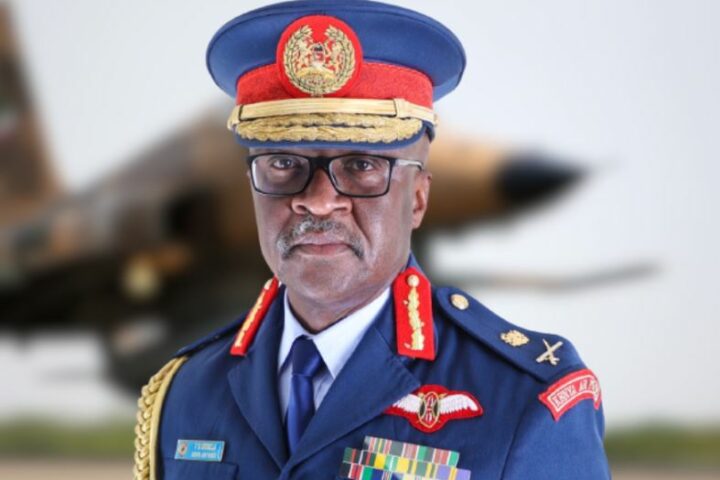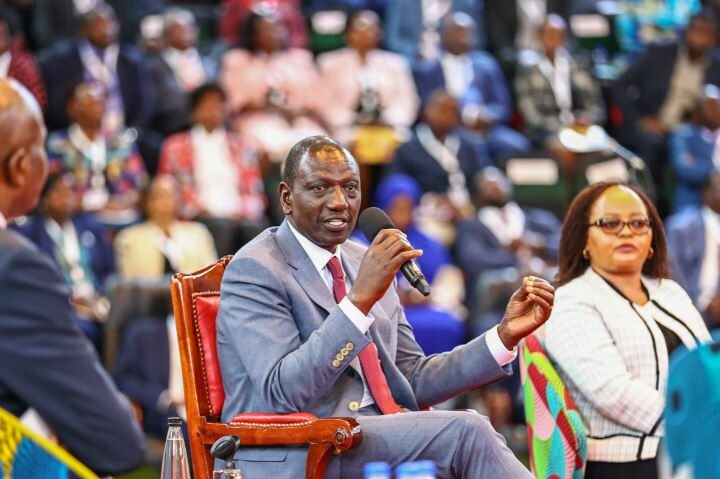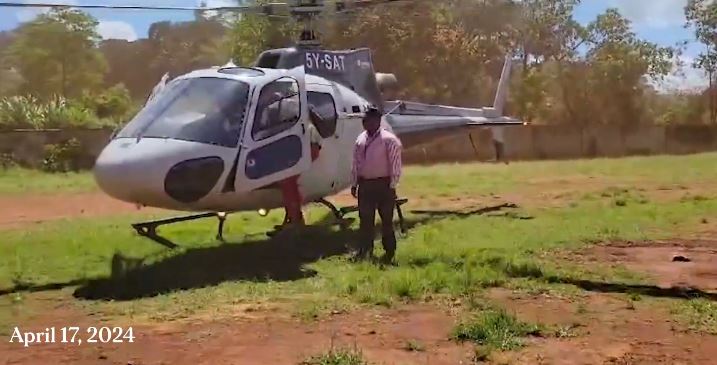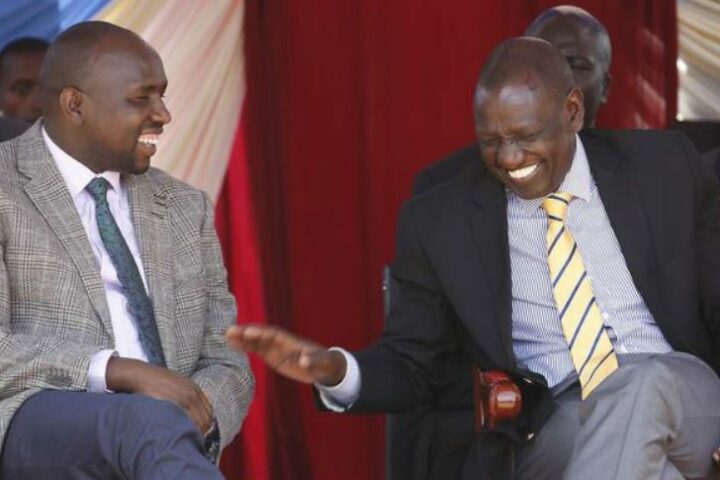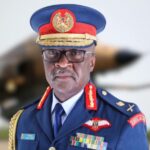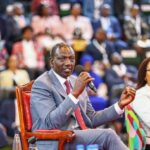The international criminal court has confirmed charges against 4 of the 6 Kenyans suspected of been masterminds of the 2007/2008 post election violence. The four who have had their cases confirmed include: Uhuru Kenyatta,, William Ruto, Joshua Sang and Francis Muthaura. Hussein Ali and Henry Kosgey’s cases were not confirmed with the judges citing lack of overwhelming evidence.
Thus, the Chamber considered it necessary to issue the two decisions on thecharges of the Prosecutor on the same day and did so today before thisappearance. The parties and participants were notified accordingly of thedecisions. Now I will turn to the decisions of the Chamber issued today. After having thoroughly examined and analyzed individually and collectivelyall the evidence presented, the Chamber, by majority, decided to confirm thecharges against four of the six suspects, as will be explained later in moredetail.
This is the entire ruling as was read by presiding judge Ekaterina Trendafilova.
In Case 1 and Case 2Court Officer, please, call the two cases in the Kenya situation.Thank you, Court Officer.Good morning, to everyone who is joining us from in and around the Courtand also to those joining us from the Republic of Kenya via the internet orotherwise.Pre‐Trial Chamber II of the International Criminal Court composed of JudgesHans‐Peter Kaul to my right, Cuno Tarfusser to my left and I – EkaterinaTrendafilova – the Presiding Judge of this Chamber, has decided to appear inCourt this morning in order to present an oral summary of its decisionsconcerning the charges of the Prosecutor against:
William Samoei Ruto, Henry Kiprono Kosgey and Joshua Arap Sang inCase 1 and
Francis Kirimi Muthaura, Uhuru Muigai Kenyatta and MohammedHussein Ali in Case 2.
Before presenting a summary of the Chamber’s findings, I would like toclarify that this is not a hearing or a Court session. The Prosecutor and theDefence teams are not present, the Legal Representatives of victims are alsonot in attendance, the Registrar and her colleagues are not here, and theChamber’s legal officers are also absent from the courtroom. Rather, the Chamber is alive to its role in ensuring that both the public atlarge and interested Kenyans, are duly informed of the Chamber’s decisionsregarding charges emanating from the violence, which engulfed the Republicof Kenya, after the announcement, on 30 December 2007, of the results of thepresidential elections.
In Case 1, the Prosecutor presented 6 counts charging the 3 Suspects withcrimes against humanity of murder, deportation or forcible transfer ofpopulation and persecution. In Case 2, the Prosecutor presented 10 counts charging the other 3 Suspectswith crimes against humanity of murder, deportation or forcible transfer ofpopulation, rape and other forms of sexual violence, other inhumane acts andpersecution. The Chamber is mindful of concerns regarding the precarious securitysituation in parts of the country. It is also attentive of its responsibility to1maintain stability in Kenya, and to fulfill its duty vis‐à‐vis the protection ofvictims and witnesses.
Thus, the Chamber considered it necessary to issue the two decisions on thecharges of the Prosecutor on the same day and did so today before thisappearance. The parties and participants were notified accordingly of thedecisions. Now I will turn to the decisions of the Chamber issued today. After having thoroughly examined and analyzed individually and collectivelyall the evidence presented, the Chamber, by majority, decided to confirm thecharges against four of the six suspects, as will be explained later in moredetail.
Judge Kaul appended a dissenting opinion in both cases. He maintains thatthe ICC is not competent because the crimes committed on the territory of theRepublic of Kenya during the post‐election violence of 2007‐2008 in his viewwere serious common crimes under Kenyan criminal law, but not crimesagainst humanity as codified in Article 7 of the Rome Statute.Before turning to the task at hand, namely the summary of the Chamber’sdecisions, I would like to briefly recall some of the important proceduraldevelopments of the two cases.
This will give a better idea of the work of theCourt, of the parties and participants in the cases.Since 8 March 2011, when the Chamber issued its decisions on thesummonses to appear, in the two cases, the Chamber has been continuouslyseized with a multitude of issues. Throughout the proceedings, the Chamberplaced at the centre of its activities its duty to ensure the fair, expeditious andindependent conduct of the entire process. The Chamber also gave substantialconsideration to the protection of victims and witnesses and the various rightsof the defence.
On 7 and 8 April 2011, in Case 1 and Case 2, respectively, the initialappearance hearings took place, during which the Chamber set the dates ofthe confirmation of charges hearing. This stage was followed by a series of judicial activities. In particular, theChamber facilitated the participation of victims by issuing a number ofdecisions in this regard. 2In the first case, the Chamber received 394 victims applications forparticipation, amounting to 4,246 pages and admitted 327 victims asparticipants in the proceedings.
In the second case, we received 249 applications for participation with thetotal of 2,864 pages and admitted 233 victims to participate.Moreover, for the purposes of ensuring the security of the victims andwitnesses, the Chamber also took decisions on the Prosecutor’s proposals forredactions, which amounted to around 12,000 pages. Apart from that, the Chamber also issued two decisions on the Governmentof Kenya’s challenges to the admissibility of the cases, in which it ultimatelyfound the cases to be admissible. The Chamber’s decisions were upheld onappeal.
Furthermore, in readiness of the confirmation of charges hearings, theChamber issued a number of decisions organizing and facilitating thedisclosure of evidence between the Prosecutor and Defence. Together, the sixDefence teams and the Prosecutor in both cases disclosed approximately30,000 pages of evidence, for the purpose of the Chambers’ determination onthe charges presented.On 1 September 2011, the confirmation of charges hearing in Case 1commenced, as decided during the initial appearance, and lasted for 7 days.Similarly, as determined during the initial appearance of the Suspects in thesecond case, the confirmation of charges hearing in Case 2 started on 21September 2011, , lasting for 12 days.
Thus, since the start of the cases, the Chamber has received 4,905 filings,including their annexes, from the Prosecutor, the Defence teams, Victimsrepresentatives, amici curiae and the Registry. Including today’s decisions, theChamber has issued 252 decisions, in both cases. This concludes the procedural background of the two cases to date. At this point and on behalf of the Chamber, I must explain that we are notpassing judgment on the guilt or innocence of the individuals.
The Chamberis tasked by law only to evaluate the strength of the Prosecutor’s case at thispre‐trial stage ‐ that is to determine whether the Prosecutor presented enoughevidence before the Chamber to confirm the charges. The standard requiredby the law, is that there are “substantial grounds to believe” that the crimescharged were committed, and that the Suspects were responsible for them.3Summary of Decision in Case 1I will now turn to the merits of Case 1, the Prosecutor v. William Samoei Ruto,Henry Kiprono Kosgey and Joshua Arap Sang. It concerns crimes committed inTurbo town, the greater Eldoret area, Kapsabet town and Nandi Hills from onor about 30 December 2007 until the end of January 2008.
I would like tounderline the following:As mentioned at the start, the Prosecutor charged Mr. Ruto, Mr. Kosgey andMr. Sang, for crimes against humanity of murder, deportation or forcibletransfer and persecution. Mr. Ruto and Mr. Kosgey were charged as indirect co‐perpetrators, while Mr.Sang was charged as having contributed to the said crimes against humanity. I will first summarise the findings of the Chamber on the crimes, and then thefindings as to the criminal responsibility.With respect to the crimes charged and based on the evidence placed before it,the Chamber found that the Prosecutor has established substantial grounds tobelieve that the crimes against humanity of murder, deportation or forcibletransfer and persecution were committed. These crimes resulted in the deathof hundreds, and the displacement of thousands of civilians from Turbo town,the greater Eldoret area, Kapsabet town and Nandi Hills. The Chamber also found that these crimes were committed as part of anattack directed against particular groups, namely, Kikuyu, Kamba and Kisii,due to their perceived political affiliation to the Party of National Unity.
As to the criminal responsibility of Mr. Ruto and Mr. Sang, the Chamberfound, on the basis of the evidence presented, that they are responsible for thecharges levied against them. In particular, Pre‐Trial Chamber II confirmed the charges against Mr. Ruto as an indirect co‐ perpetrator with others, pursuant to article 25(3)(a) of theRome Statute, while it found that Mr. Sang contributed to the commission ofsaid crimes against humanity, pursuant to article 25(3)(d)(i), to the extentspecified in the written decision.However, in relation to Mr. Kosgey, the Chamber found that the Prosecutor’sevidence failed to satisfy the evidentiary threshold required.
The Chamberwas not persuaded by the evidence presented by the Prosecutor of Mr.Kosgey’s alleged role within the organization. 4In particular, the Prosecutor relied on one anonymous and insufficientlycorroborated witness. Moreover, the Chamber determined that Mr. Kosgeysuffered prejudice due to the redaction of certain dates related to a number ofmeetings that he allegedly attended, which proved to be essential for hisdefence and for the finding on his criminal responsibility. In light of these facts and the entire body of evidence relating to Mr. Kosgey’scriminal responsibility, the Chamber declined to confirm the charges againstMr. Kosgey. Summary of Decision in Case 2Turning now to Case 2, the Prosecutor v. Francis Kirimi Muthaura, UhuruMuigai Kenyatta and Mohammed Hussein Ali. As mentioned earlier, the Prosecutor charged Mr. Muthaura, Mr. Kenyattaand Mr. Ali with crimes against humanity of murder, deportation or forcibletransfer, rape and other forms of sexual violence, other inhumane acts andpersecution.
Mr. Muthaura and Mr. Kenyatta were charged as indirect co‐perpetrators,while Mr. Ali was charged as having contributed to the said alleged crimesagainst humanity.As to the crimes, the Chamber found, on the basis of a thorough review of theevidence individually and collectively, substantial grounds to believe thatbetween 24 and 28 January 2008 there was an attack against the civilianresidents of Nakuru and Naivasha perceived as supporters of the OrangeDemocratic Movement, in particular those belonging to the Luo, Luhya andKalenjin ethnic groups.The Chamber also found that the attack resulted in a large number of killings,displacement of thousands of people, rape, severe physical injuries andmental suffering. Thus, the evidence established substantial grounds to believe that the crimesof murder, deportation or forcible transfer, rape, other inhumane acts andpersecution were committed. With respect to the criminal responsibility of Mr. Muthaura and Mr. Kenyatta,the Chamber was satisfied that the evidence also established substantialgrounds to believe that they are criminally responsible for the alleged crimes,as indirect co‐perpetrators, pursuant to article 25(3)(a) of the Rome Statute,having gained control over the Mungiki and directed them to commit thecrimes.5However, in relation to Mr. Ali, the Chamber found that the evidencepresented does not provide substantial grounds to believe that the KenyaPolice participated in the attack in or around Nakuru and Naivasha.
Since Mr.Ali was charged with contributing to the crimes through the Kenya Police, theChamber declined to confirm the charges against him.The Chamber will now outline the impact of its decisions on: (1) those againstwhom the charges have been confirmed; (2) on those against whom thecharges have not been confirmed (namely, Mr. Kosgey and Mr. Ali); (3) aswell as on the victims. As a result of the decisions issued today, Mr. Ruto, Mr. Sang, Mr. Muthauraand Mr. Kenyatta are committed to trial. They will be tried before a differentChamber for the charges confirmed. To this end, one or more Trial Chamberswill be established by the Presidency of the ICC. In this regard, the Chamber wishes to highlight that victims, who are alreadyrepresented before this Chamber, may participate in the trial. Other victimswill have the right and opportunity to apply to participate during the trialstage. Victims will have also the right to request reparations, should theaccused persons be found guilty.
The Chamber wishes to be unequivocal and state that Mr. Ruto, Mr. Sang, Mr.Muthaura and Mr. Kenyatta are merely accused before this Court. TheChamber would like to emphasise, for the purposes of clarity, that thepresumption of innocence remains fully intact. At trial, the Prosecutor will have the burden of proving the guilt of theaccused beyond a reasonable doubt, pursuant to article 66 of the Statute.Furthermore, the decisions issued today by this Chamber do not affect theliberty of the accused, which remains undisturbed. This, however, absolutely depends on the accused’s adherence to theconditions contained in the summonses to appear, which continue to remain in full force. At this point, the Chamber recalls its previous warning to theSuspects that their continued liberty is subject to their non‐engagement inincitement of violence or hate speech.As to Mr. Kosgey and Mr. Ali, the Chamber wishes to clarify that they are nolonger Suspects before the Court. However, the Chamber recalls article 61(8)of the Rome Statute, according to which the Prosecutor may presentadditional evidence requesting confirmation of charges against Mr. Kosgeyand Mr. Ali.
We have now concluded the summary of the Chamber’s decisions in Case 1and Case 2. At this juncture, the Chamber would like to express a fewsentiments.Today and indeed throughout the proceedings in these cases, we haveappeared in our official capacities as Judges of the International CriminalCourt. Offices which task us with the sole purpose of achieving justice ‐justice for all – for victims but equally, justice for those who appeared beforethe Court. This is not rhetoric but a tangible goal we all genuinely strive for. In reaching our decisions we have reviewed all the evidence individually andcollectively, regardless of its source, firmly guided by the provisions of theCourt’s statutory documents.
In the fulfillment of our judicial mandate, wehave looked through impartial and independent lenses, in order to ascertainwhether the requisite threshold in article 61 of the Statute, for confirmation ofthe charges has been reached. It is our utmost desire that the decisions issued by this Chamber today, bringpeace to the people of the Republic of Kenya and prevent any sort of hostility.The decisions are the result of intensive and committed judicial work of theChamber, conducted impartially, independently and conscientiously in theinterests and in the service of justice. That concludes Pre‐Trial Chamber II’s appearance this morning. Before weleave the courtroom, on behalf of the Chamber, I would like to thankeveryone who has been following this public appearance and especially thepeople of the Republic of Kenya.
